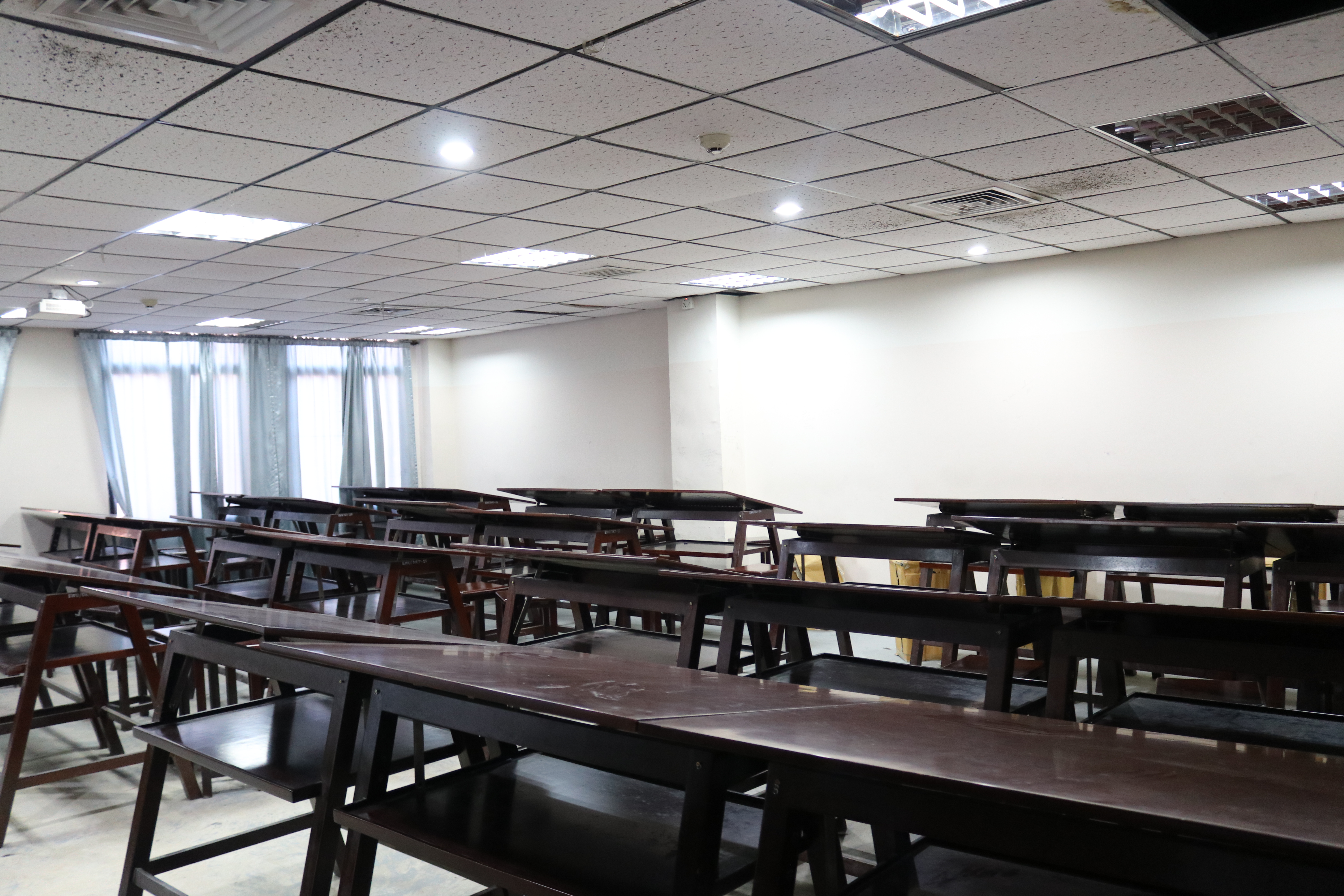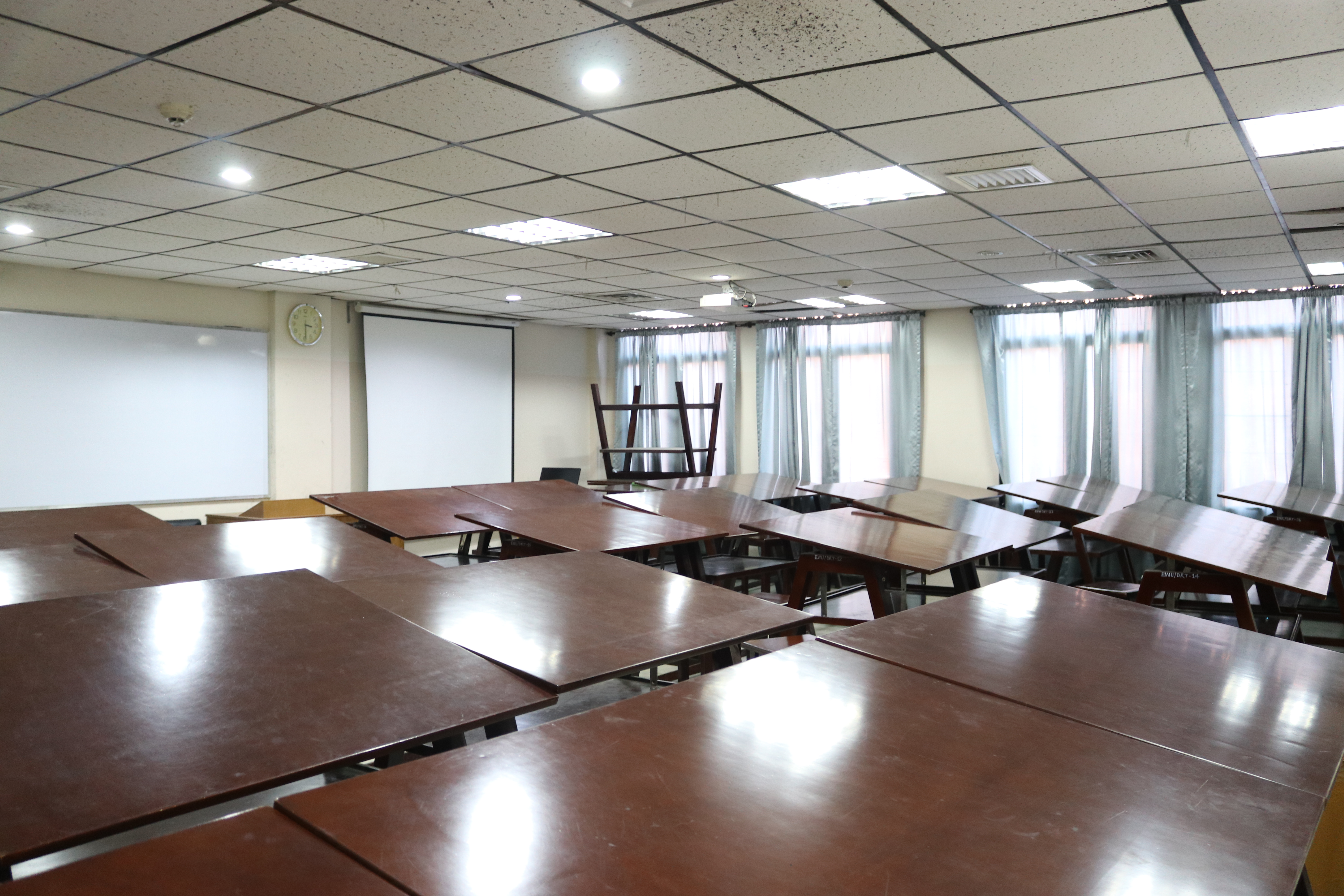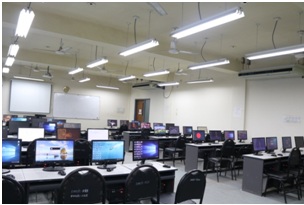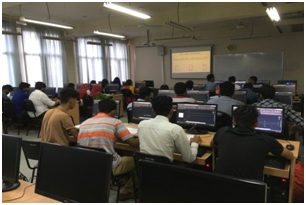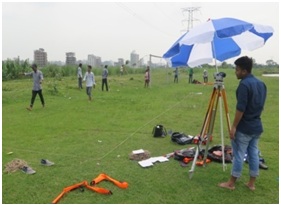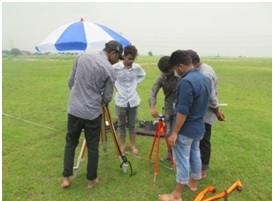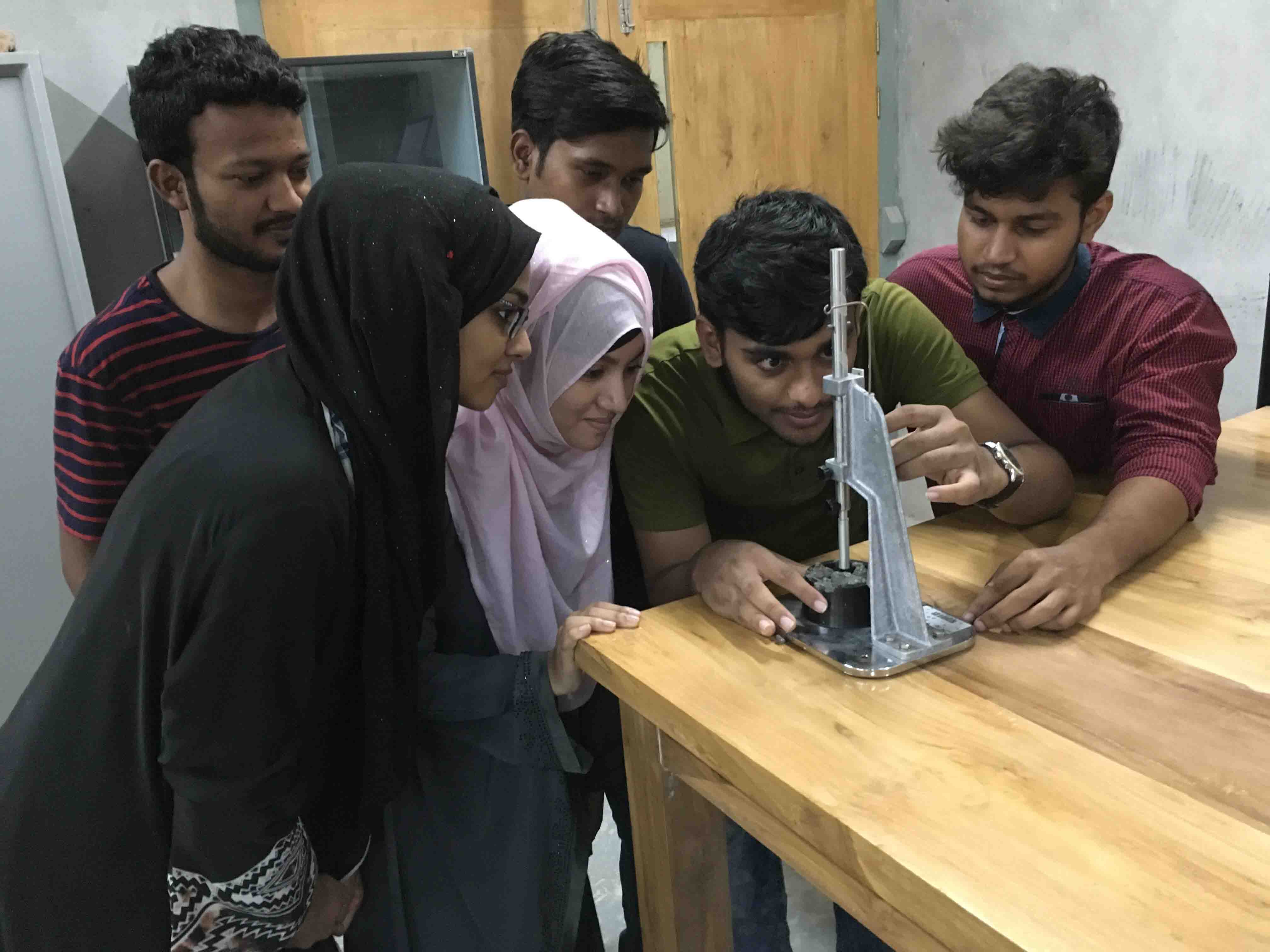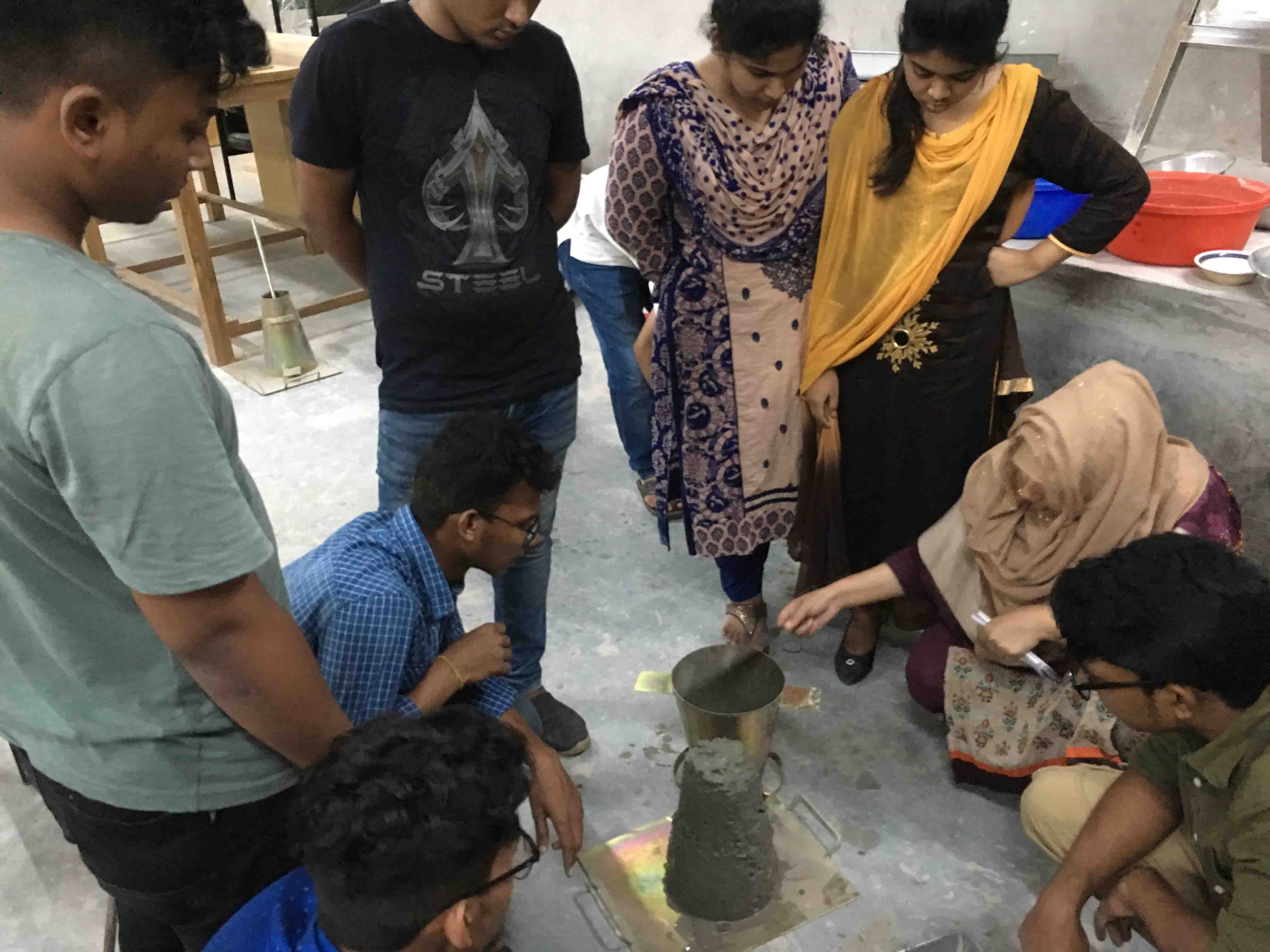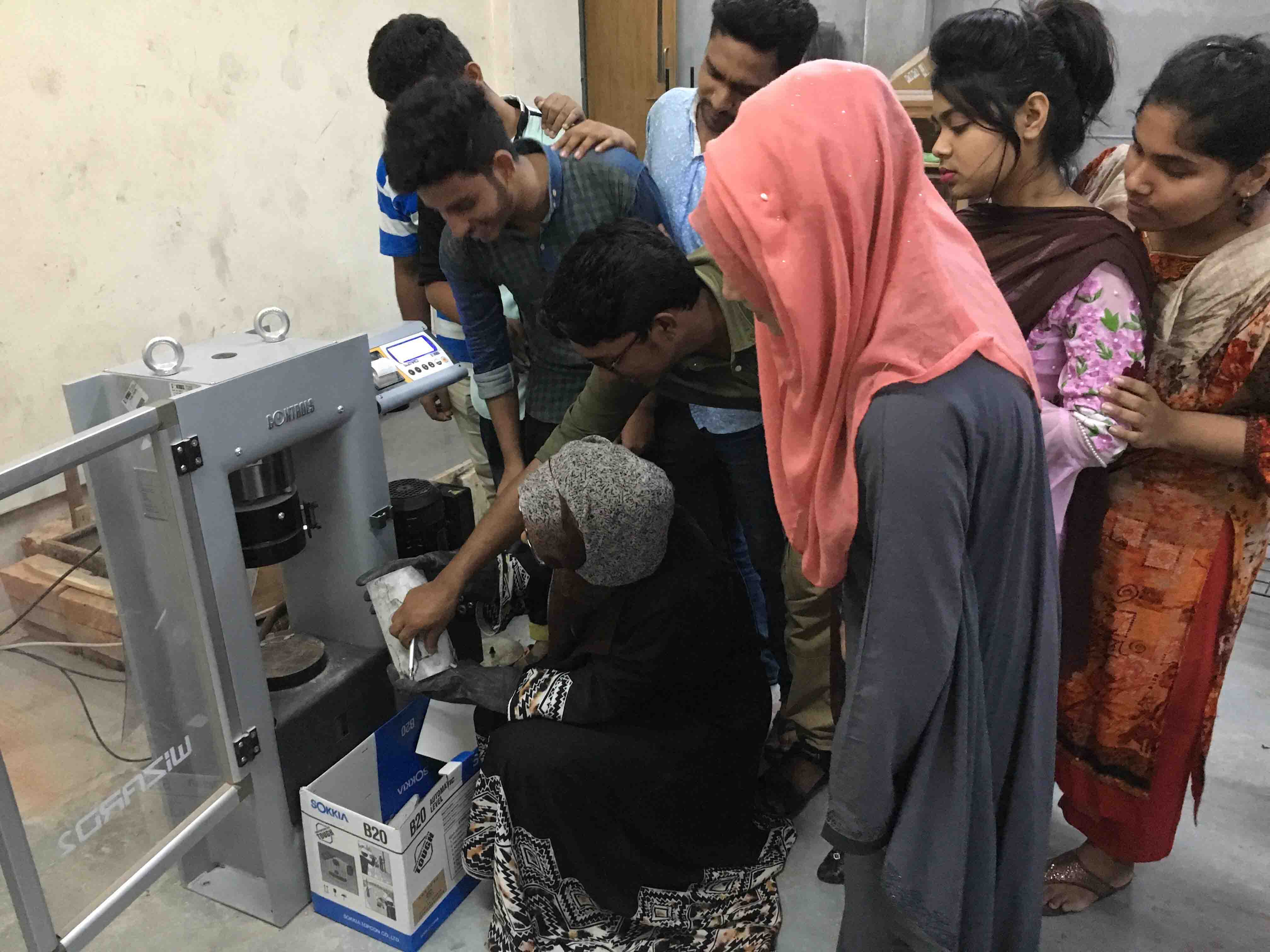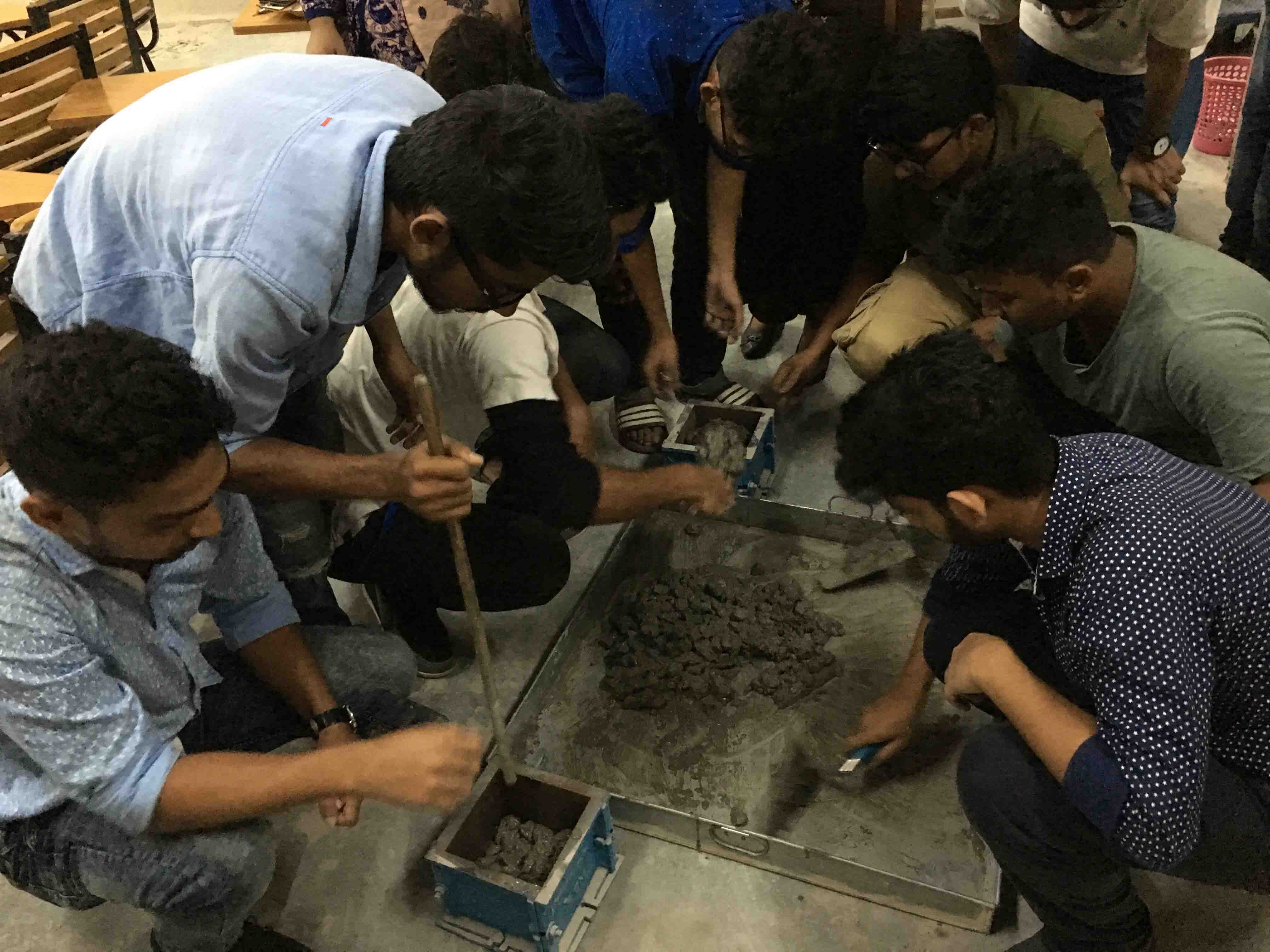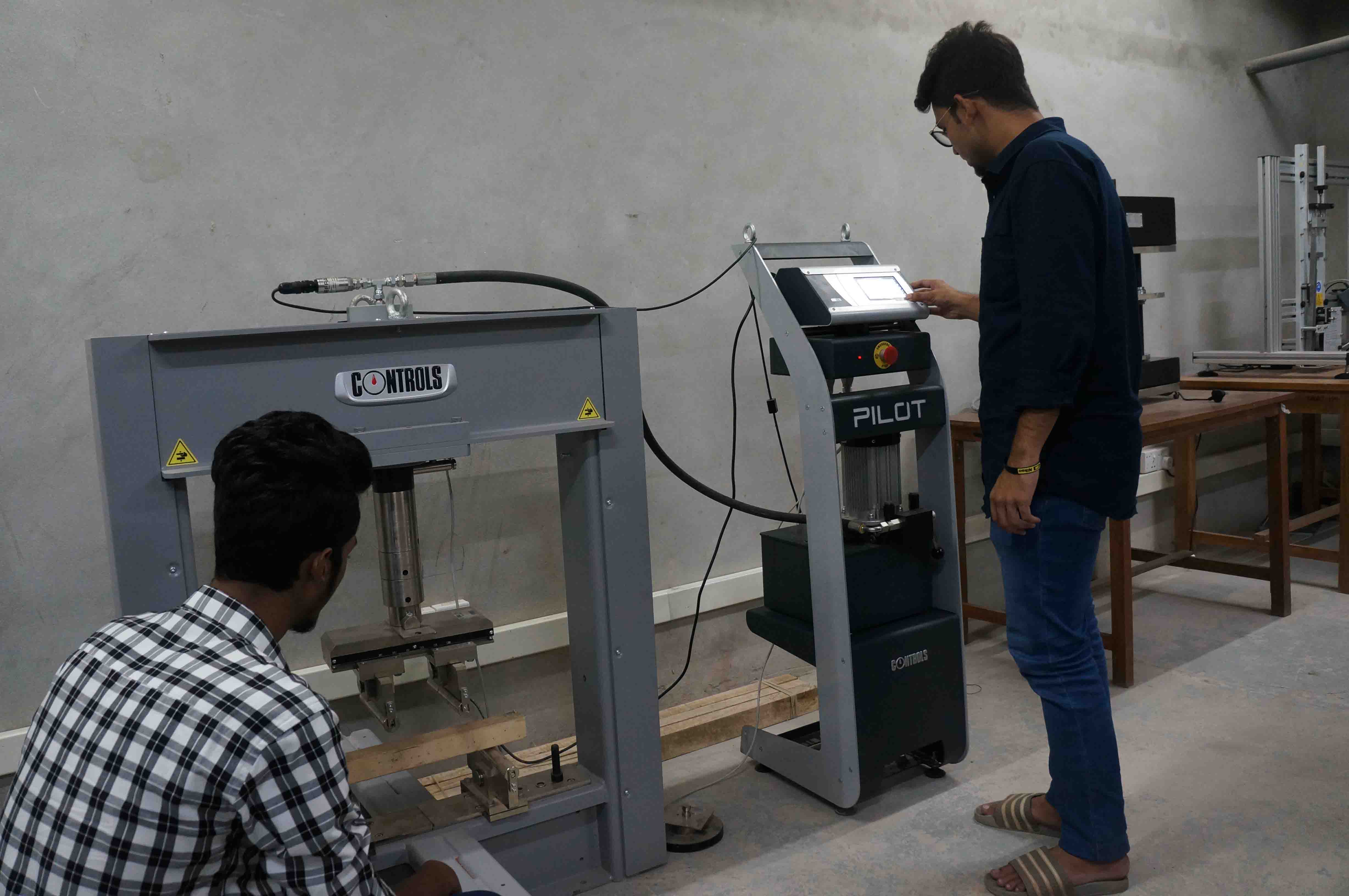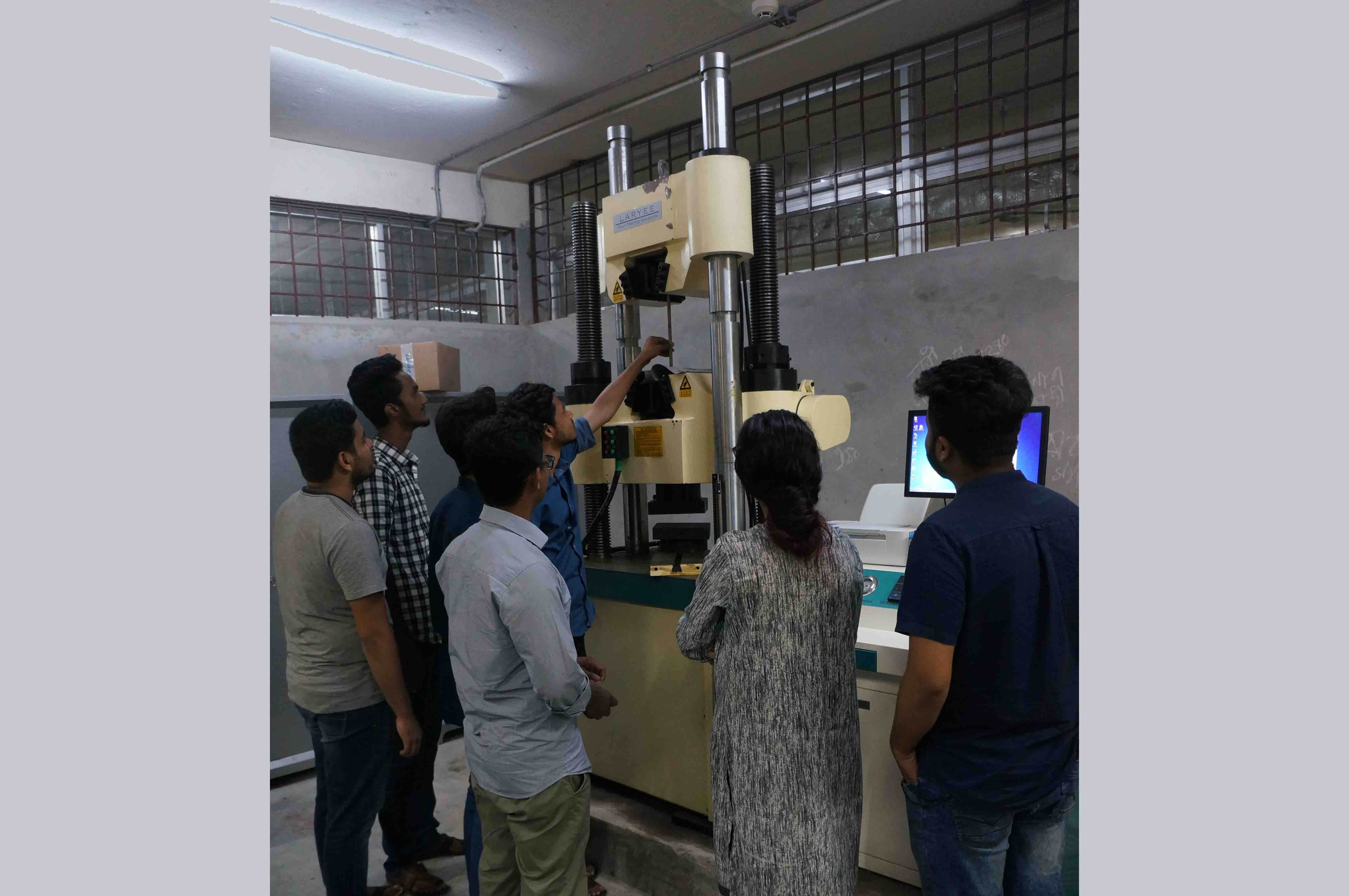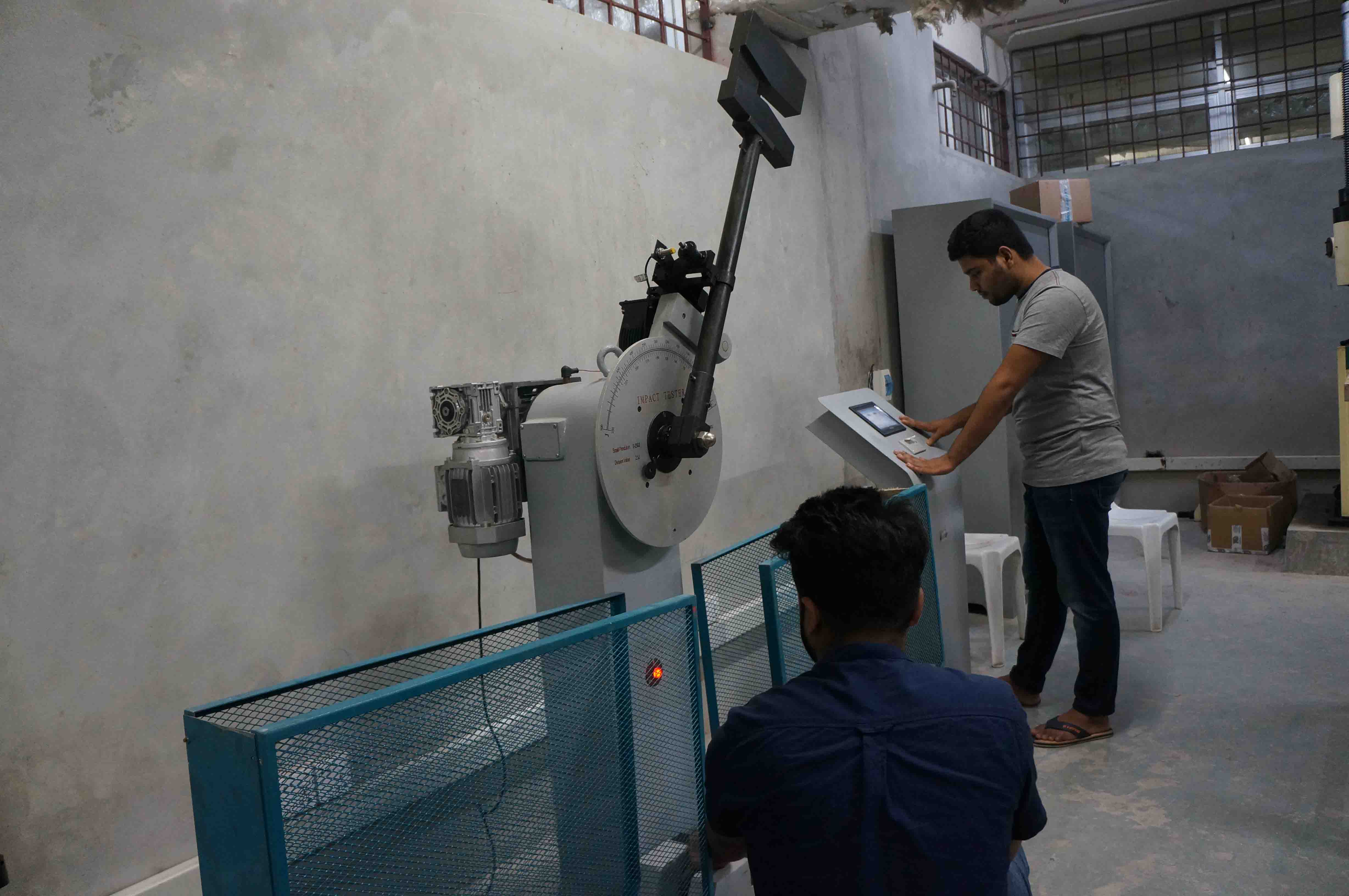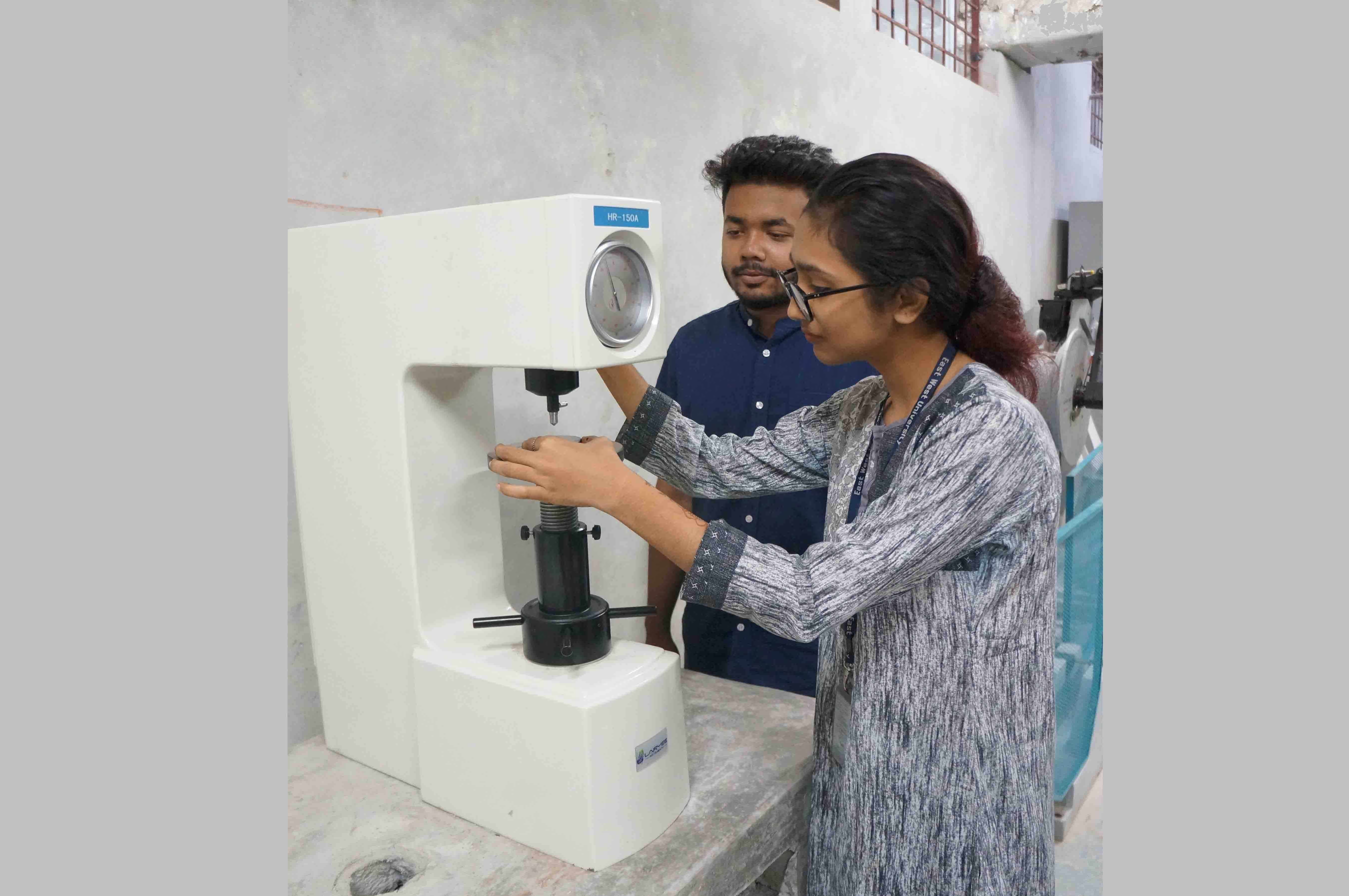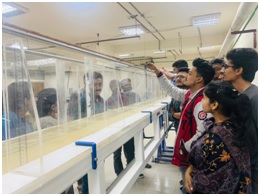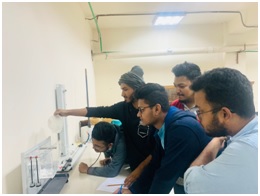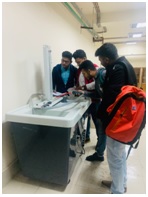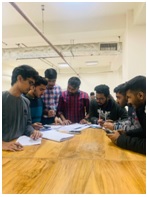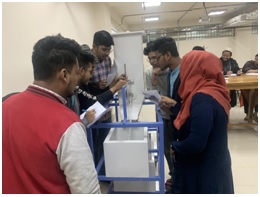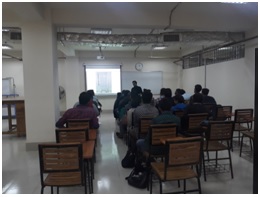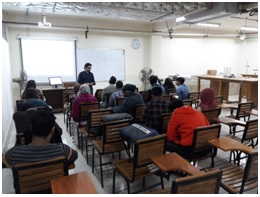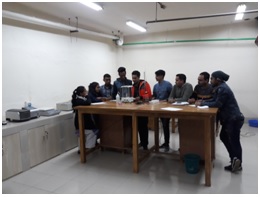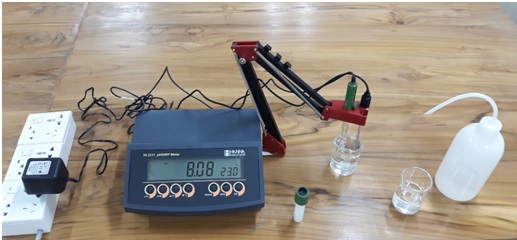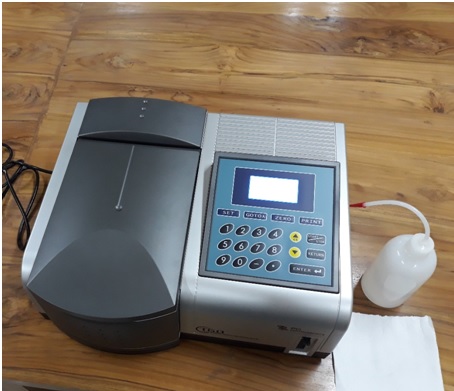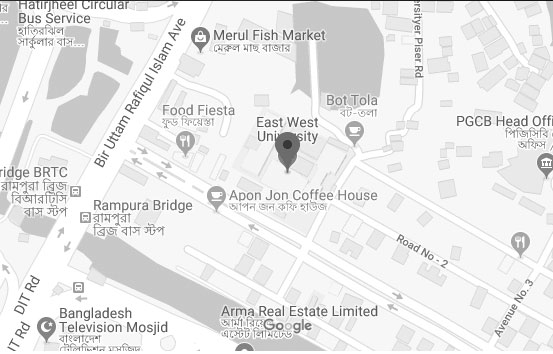|
|
|
It is said that Drawing is the Language of Civil Engineer. Department has developed Civil Engineering Drawing Lab with specially designed state-of-art drawing tables. The Lab is furnished with all the necessary classroom facilities and sufficient number of drawing tables. Students are taught the basics of engineering drawing with an emphasis on building drawing through engineering drawing course. The Lab is located at the second floor of the university block-C building.
|
|
|
The AutoCad laboratory of the department of Civil Engineering possess necessary classroom facilities along with sufficient number of computers to teach AutoCAD software. All the computers contain the latest licensed version of AutoCAD software. A total thirty five number of students can simultaneously attend the lectures. Usually, in Level-1, Term-2 students need to take the AutoCAD sessional course where the students learn the ins and outs of the AutoCAD software for Civil Engineering drawings with emphasis on building and bridge drawings. The Lab is situated at the fourth floor of the university block-B building.
Surveying Laboratory is equipped with the latest equipments such as the total Station, Theodolite, Level, GPS etc. In Level-1, Term-2, students are taken to the field once in every week throughout the semester to conduct filed survey using the latest survey equipments. Students learn how to take field measurements by using the equipments, calculate and produce maps and drawings. The survey laboratory is situated at the second floor of the university block-D building.
|
|
|
Field Survey Performed
The laboratory is capable of performing wide range of surveys. A few important surveys performed frequently are listed below:
| SL. No. | Name of the Survey |
| 01. | Chain Surveying |
| 02. | Traverse Surveying |
| 03. | Plane Table Surveying |
| 04. | Leveling and Contouring |
| 05. | House Setting |
| 06. | Curve Setting: Simple and Transition Curves |
| 07. | Height and Distance Survey |
| 08. | Route Project |
| 09. | Introduction and Application of Total Station and GPS |
Click to view Survey Laboratory Instruments
The department of Civil Engineering at East West University has a well equipped Engineering Materials Laboratory. The lab possess large number of modern instruments such as compression testing machine, Los, Angles Abrasion testing machine, mortar mixer, concrete mixer, tensile testing machine, sieve shaker, oven etc. At Level-2 Term-1, students utilized this laboratory to determine the properties of engineering materials and mixtures such as cement, fine aggregate, coarse aggregate, mortar, concrete etc. The Engineering Materials Laboratory is situated at the second basement of the university building.
|
|
|
|
|
|
Test Facilities
The laboratory is capable of performing wide range of tests. A few important tests performed frequently are listed below:
| SL. No. | Name of the Test |
| 01. | Sampling, Efflorescence, Compressive Strength and Absorption test of Brick |
| 02. | Initial Setting Time of Cement |
| 03. | Normal Consistency of Cement |
| 04. | Compressive Strength of Cement Mortar and Brick Specimens |
| 05. | Sieve Analysis of Fine and Coarse Aggregate |
| 06. | Specific Gravity and Absorption Capacity of Fine Aggregate |
| 07. | Specific Gravity and Absorption Capacity of Coarse Aggregate |
| 08. | Unit Weight and Voids in Aggregate |
| 09. | Abrasion and Impact of Coarse Aggregate |
| 10. | Slump, Air Content of Concrete and Compressive Strength of Cylindrical Concrete Specimens |
Click to view Engineering Materials Lab Instruments
The purpose of the Strength of Materials laboratory is to observe and predict the behavior of engineering materials such as mild steel, cast iron, concrete, wood etc. under different type of loading conditions. The lab has all the necessary instruments such as Universal Testing Machine (UTM), Flexure testing machine, Hardness testing machine, Impact testing machine, Torsion testing machine, Spring testing machine, Buckling testing machine etc. At Level-2 Term-1, students receive hands-on education using these instruments to characterize engineering materials. The Strength of Materials Laboratory is situated at the second basement of the university building.
|
|
|
|
|
|
Test Facilities
The laboratory is capable of performing wide range of tests. A few important tests performed frequently are listed below:
| SL. No. | Name of the Test |
| 01. | Tension Test of Metal Specimens |
| 02. | Compression Test of Timber Block |
| 03. | Direct Shear Test of Mild Steel and other Metals |
| 04. | Hardness Test of Metal Specimens |
| 05. | Impact Test of Metal Specimens |
| 06. | Torsion Test of Metal Specimens |
| 07. | Test of Helical Spring |
| 08. | Static Bending Test of Beam Specimens |
| 09. | Buckling Test of Column |
| 10. | Compression Test of Concrete Cylinder |
Test Facilities for Fluid Mechanics Laboratory
The department of Civil Engineering at East West University has a well-equipped Fluid Mechanics Laboratory. The lab possesses large number of modern instruments such as hydraulic bench, venturimeter, and Bernoulli’s theorem apparatus, pipe friction apparatus, V-notch, rectangular weir, trapezoidal weir, center of pressure apparatus, 6 meters tilting flume etc. The laboratory is suitable to use for undergraduate/postgraduate teaching and research purposes alongside engineering consulting.The Fluid Mechanics Laboratory is situated at the second basement of the university building.
|
SL. No.
|
Name of the Test
|
|
01.
|
Determination of the center of pressure on the immersed surface
|
|
02.
|
Investigation of Bernoullis theorem
|
|
03.
|
Determination of flow through venturimeter
|
|
04.
|
Determination of flow through orifice
|
|
05.
|
Determination of flow through Mouthpiece
|
|
06.
|
Determination of flow over sharp crested rectangular weir
|
|
07.
|
Determination of flow over V-notch
|
|
08.
|
Determination of fluid friction in pipe
|
|
|
|
|
6 meters long Tilting Flume
|
Centre of Pressure Apparatus
|
|
|
|
|
Hydraulic Bench
|
Lab Activity
|
|
|
|
|
Orifice and Mouthpiece
|
Lab Class Environment
|
Test Facilities for Environmental Engineering Laboratory
The Environmental Engineering Laboratory at the Department of Civil Engineering, East West University is well-equipped with modern apparatus and reagents to smoothly perform all sorts of routine as well as specialized testing for the determination of water quality. The notable water quality parameters those can be determined in the laboratory are pH, color, turbidity, total solids (TS), total dissolved solids (TDS), total suspended solids (TSS), chemical oxygen demand (COD), biochemical oxygen demand (BOD), carbon dioxide, alkalinity, hardness, chloride, iron, optimum coagulant dose, chlorine demand etc. The laboratory is suitable to use for undergraduate/postgraduate teaching purposes, research,and engineering consulting. It is located in the lower basement of the University Building Complex.
|
SL. No.
|
Name of the Test
|
|
01.
|
Determination of pH of Water
|
|
02.
|
Determination of Turbidity of Water
|
|
03.
|
Determination of Color of Water
|
|
04.
|
Determination of Total Solids, Total Dissolved Solids and Total Suspended Solids of Water
|
|
05.
|
Determination of Carbon Dioxide in Water
|
|
06.
|
Determination of Alkalinity of Water
|
|
07.
|
Determination of Hardness of Water
|
|
08.
|
Determination of Chloride of Water
|
|
09.
|
Determination of Break Point Chlorination
|
|
10.
|
Determination of Optimum Coagulant Dosage/Alum Coagulation
|
|
11.
|
Determination of Biochemical Oxygen Demand
|
|
12.
|
Determination of Chemical Oxygen Demand
|
|
13.
|
Determination of Total Iron in Water
|
|
14.
|
Determination of Total and Fecal Coliform in Water
|
|
|
|
|
|
|
Geotechnical Engineering Laboratory
The purpose of the Geotechnical Engineering Laboratory is to know the physical and mechanical properties of different types of soil by tests. These include the physical appearance, texture, density, permeability, strength and other important properties. The geotechnical laboratory at East West University is situated at the lower basement and it has all the necessary instruments such as Unconfined Compression Device, Direct Shear Apparatus, Sieve Shaker, Liquid Limit Device, Shrinkage Limit Set, Drying Oven, Pycnometer, Thermometer, Balance, Stopwatch etc. At 3rd year, students receive hands-on education using these instruments to characterize soil properties.
Test Facilities
The laboratory is capable of performing wide range of tests. A few important tests performed frequently are listed below:
|
SL. No.
|
Name of the Test
|
|
01
|
Water Content Determination
|
|
02
|
Specific Gravity Determination
|
|
03
|
Grain Size Analysis Test (Sieve Analysis)
|
|
04
|
Particle Size Analysis Test by Hydrometer
|
|
05
|
Atterberg Limit Test
|
|
06
|
Compaction Test
|
|
07
|
Unconfined Compressive Strength Test
|
|
08
|
Direct Shear Test
|
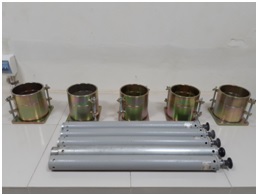 Modified Proctor Hammer with Mold |
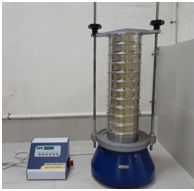 Sieve Shaker with ASTM Sieves |
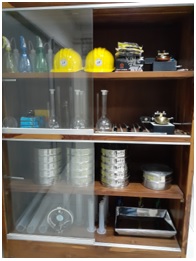 Pycnometer, Graduated Cylinder Set, Thermometer, Moisture Sprayer, Safety Tools etc. |
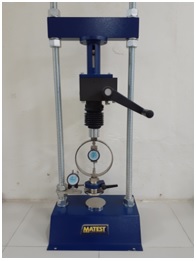 Unconfined Compression Device |
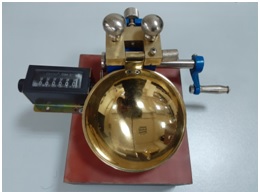 Liquid Limit Device |
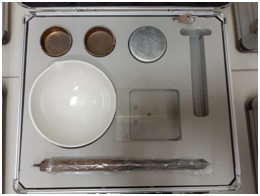 Shrinkage Limit Set |
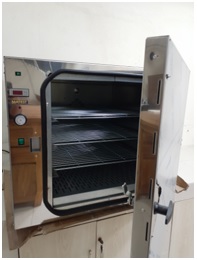 Drying Oven |
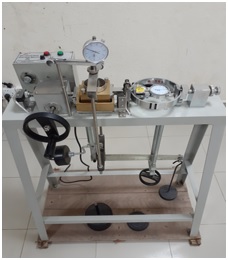 Direct Shear Apparatus |
Transportation Engineering Lab
The purpose of the Transportation Engineering Laboratory is to know and analyze Bitumen & its engineering properties, Aggregate & its engineering properties, conduct CBR Test and Marshall Mix Design and to understand traffic flow and travel behavior. The Transportation Engineering laboratory at East West University is situated at the lower basement and it has all the necessary instruments such as Marshall Test Apparatus, CBR Test Apparatus, Thin Film Oven, Ductility apparatus, Flash and Fire point Apparatus, Softening Point Apparatus, Solubility Apparatus and many other important equipments. At 4th year students receive hands-on education using these instruments.
Test Facilities
The laboratory is capable of performing wide range of tests. A few important tests performed frequently are listed below:
|
SL. No.
|
Name of the Test
|
|
01
|
Determination of Aggregate Impact Value
|
|
02
|
Determination of Aggregate Crushing Value
|
|
03
|
Determination of the Ten Percent Fines
|
|
04
|
Determination of Flakiness Index
|
|
05
|
Determination 0f Elongation Index
|
|
06
|
Determination of Angularity Number
|
|
07
|
Determination of Roadway Capacity
|
|
08
|
Saturation Flow at Traffic Signals
|
|
09
|
Specific Gravity of Semi-Solid Bituminous Material
|
|
10
|
Loss on Heating of Oil and Asphaltic Compound
|
|
11
|
Penetration of Bituminous Material
|
|
12
|
Softening Point of Bituminous Material
|
|
13
|
Solubility of Bituminous Material
|
|
14
|
Ductility of Bituminous Material
|
|
15
|
Flash and Fire Points of Bituminous Material
|
|
16
|
Standard Test Method for CBR of Laboratory Compacted Soils
|
|
17
|
Marshall Method of Mix Design of Paving Mixtures
|
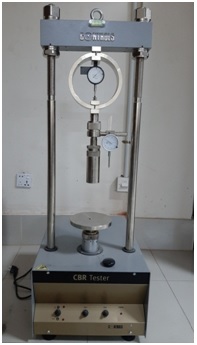 CBR Test Apparatus |
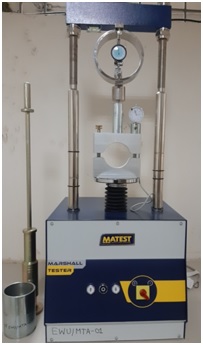 Marshall Test Apparatus |
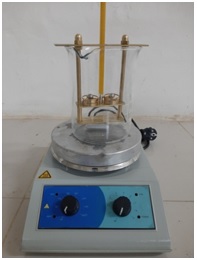 Softening Point Apparatus |
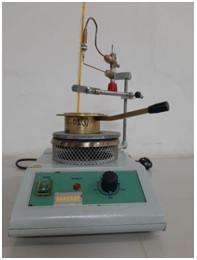 Flash and Fire Point Apparatus |
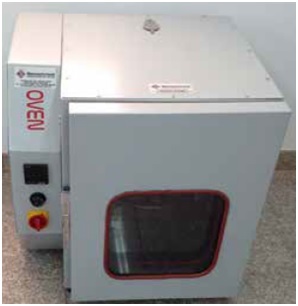 Thin Film Oven |
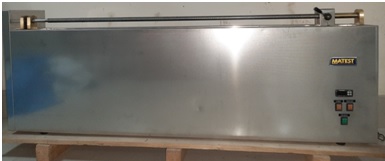 Ductility Test Apparatus |

